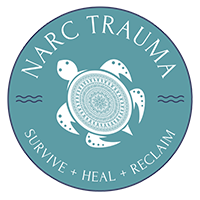The Narcissist’s Image Game: Controlling the Story to Keep You Powerless

By Brenda Stephens, Licensed Professional Clinical Counselor
Author of Recovering from Narcissistic Mothers, The Narcissism Recovery Workbook, and COMING SOON – Embodied Healing From Narcissistic Abuse – A Guided Journal Using Polyvagal Theory and Trauma Informed Practices
One of the most disorienting experiences for survivors of narcissistic abuse is being erased from their own story. Not just silenced, but rewritten. Turned into the villain, the unstable one, the “problem.” And while you’ve been isolated, doubted, or pressured to “keep family matters private,” the narcissist works overtime to polish their public image.
If you’ve ever wondered why speaking your truth feels so dangerous, this is why. Narcissists don’t just fear exposure. They build their identity on avoiding it. Here’s how they do it, why it’s so damaging, and what you can do to protect yourself while reclaiming your reality.
The Image is Everything
To a narcissist, image isn’t just important. It’s survival.
The “perfect spouse,” “devoted parent,” or “pillar of the community” persona gives them power, admiration, and cover. Any crack in that facade, even a quiet truth whispered to a friend, feels like an attack.
So they guard it. With secrets. With shame. With manipulation that keeps you quiet, and they look flawless.
They Don’t Just Hide Abuse, They Hide Everything
A narcissist doesn’t only silence talk about their behavior. They shut down anything that might reflect poorly on the family, even if it has nothing to do with them directly.
In many families ruled by a narcissist, you’ll notice that no one is allowed to talk about:
- Mental health struggles
- Medical issues or chronic illness
- Neurodivergence or disability
- Trauma, abuse, or addiction
- Financial problems or job loss
- Academic difficulties or learning differences
- Grief or unresolved pain
- Anything that makes the family look less than “perfect”
You might hear things like “we don’t talk about that,” “don’t tell anyone,” or “keep it in the family.” This silence isn’t about privacy. It’s about control. The narcissist cannot allow anything to exist that might contradict the polished image they work so hard to maintain. Even if it means sacrificing the emotional and physical well-being of those around them.
When a child isn’t getting the support they need for anxiety or ADHD because it would “make the family look bad,” that’s not just neglect—it’s image management. When a spouse is discouraged from sharing grief or depression because it makes the narcissist uncomfortable, that’s emotional abandonment wrapped in control.
This kind of environment teaches everyone to swallow their pain, mask their reality, and put on a happy face. Not because things are actually okay, but because the narcissist demands that they look that way.
Why They Fear Exposure
When outsiders hear the truth, three things can happen. All of them are threats to the narcissist:
- They might call out the behavior.
- They could stop enabling it.
- They may even stand up for you.
That’s why they control the story. Why do they convince you that airing dirty laundry is worse than living in a house full of rot? Why do they punish you emotionally or even financially for speaking up?
Controlling the Narrative
The fewer people who hear your side, the easier it is for the narcissist to rewrite the script.
They become the sole narrator of events, often distorting, omitting, or fabricating details outright. Family and friends may only hear their version, leaving you looking unhinged, bitter, or dramatic.
When someone controls the narrative, they control perception. And when they control perception, they often control support, resources, and even legal outcomes.
The Damage to You
1. Isolation
You may stop reaching out, thinking no one will believe you. Friends and family drift away. You feel disconnected from your own story because it’s never spoken aloud.
2. Emotional Toll
The secrecy feeds shame. If no one knows what’s happening, maybe it’s not really happening. Maybe it’s your fault. This kind of chronic invalidation can spiral into anxiety, depression, and even physical health issues.
3. Lack of Support
Without outside eyes on the situation, you miss out on crucial help. Legal advice, financial guidance, even just someone to say, “That’s not okay.” You’re left trying to escape a trap with no tools and no backup.
If You’re Still in the Relationship: Be Strategic
You don’t owe your truth to everyone, but you do deserve safety, support, and sanity. Here’s how to share carefully:
- Identify Safe Outsiders: People who believe you, protect your confidence, and won’t feed anything back
- Pick the Right Moment: Share in private. Never in places the narcissist might overhear, monitor, or weaponize
- Stick to Facts: Share what helps you get support. Leave out emotional details that could be twisted against you
Practical Tools
- Code Words: Set up phrases with a trusted person that mean “Call me now” or “I need help.”
- Private Documentation: Keep notes, emails, or (if legal in your state) recordings stored somewhere safe or off-site.
The Long Game
Let’s be clear. Building a support system isn’t betrayal. It’s survival.
Their secrets protect their reputation.
Your truth protects your safety, your clarity, and your future.
You deserve to be believed. To be supported. To feel like your story makes sense again.
Speaking out isn’t just about being heard. It’s about being free.







